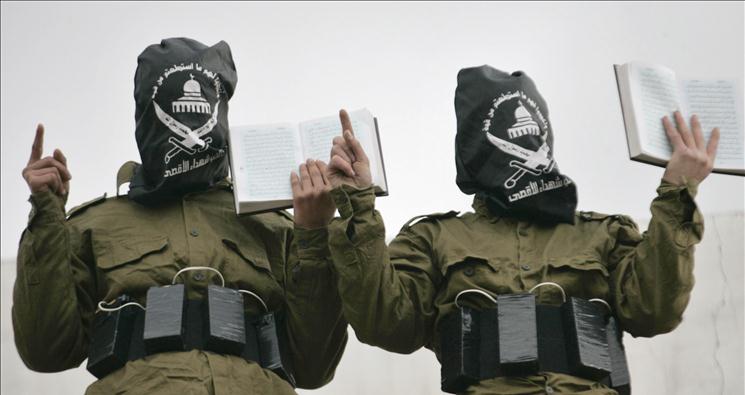Should Americans be Shielded from the Evils of our Enemy?
When I was serving in Iraq during the surge, I distinctly remember watching hand-wringing from back home as commentators wondered if media reluctance to show American casualties (including video of Americans killed and wounded in the field) was “sheltering the public from the reality of war.”
Well, yes, we are sheltered from the reality of war — but not in the way you might think. Of course we’re careful about showing American casualties (as we should be; our casualty notification process shouldn’t begin with CNN), but the public is mainly sheltered from understanding the nature and actions of our enemy. Over the weekend, video of a Taliban adultery execution “sparked outrage” around the world yet many who’ve served downrange are quite familiar with videos far, far worse. In fact, the terrorist film (complete with up-close beheadings and jihadists shrieking “Allahu akbar” like they’re cheering a soccer goal) is a staple of many jihadist safe houses.
In other words, our jihadist enemy is pure evil, and Americans are constantly shielded from that fact.
Just in my area of operations (Diyala, Iraq) jihadists not only beheaded civilians to “send a message,” they raped women to “recruit” them as suicide bombers, they shot babies in the face and passed around the pictures, they put bombs in backpacks and put the backpacks on handicapped kids because they knew our soldiers often went out of their way to help the handicapped, they rigged makeshift chlorine gas bombs, and they routinely tried the double suicide bombing (blow up a restaurant, then blow up the rescue workers).
And for those in the moral-equivalence crowd, during that hellstorm of jihadist atrocities the number of innocent civilians killed by our own soldiers could literally be counted on the fingers of one hand — and in each case we apologized and compensated the victims’ families.
Ignorance has consequences. Many Americans are consumed with wishful, magical thinking when it comes to the motivations of our enemies. We think they’re “just like us” when they’re not. We think they’re mainly motivated by our own sins and crimes when they’re not. We simply refuse to believe that many of our enemies are motivated by pure, unreasoning hate and literally love death. As we ponder our future in Afghanistan and elsewhere and long to end more than a decade of war, I’m reminded of the words of the prophet Jeremiah: “They dress the wound of my people as though it were not serious. ‘Peace, peace,’ they say, when there is no peace.”
